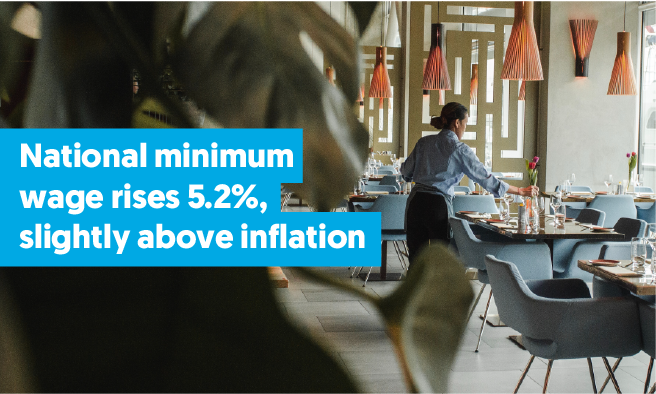
Employees on the national minimum wage will receive a 5.2% pay increase from July 1, following a decision by the Fair Work Commission’s expert review panel.
The new national minimum wage will be $21.38 per hour or $812.60 per week.
Several employer bodies proposed an increase of between 2.5% and 3%; the Australian Council of Trade Unions (ACTU) proposed a 5.5% increase; and the federal government proposed that real wages should not go backwards, which would’ve meant an increase of at least 5.1%, which is the current rate of inflation.
In the end, the panel settled on a 5.2% increase, which it said would strike a balance between the interests of low-paid workers and businesses.
“The panel accepted the need for moderation in order to constrain the inflationary pressures arising from our decision,” it said in a statement.
“The 0.5% increase in the superannuation guarantee rate [to 10.5%], removal of the $450/month superannuation threshold and the 2022–23 Budget measures are also moderating factors.
“That said, the panel noted that it was conscious that the low-paid are particularly vulnerable in the context of rising inflation.”
Business concerned, workers pleased
The Australian Industry Group, which represents employers, was critical of the Fair Work Commission’s decision.
Ai Group Chief Executive Innes Willox said the 5.2% wage rise would “fuel inflation and lead to even higher interest rates” and “add substantially to the risk of unemployment and underemployment – particularly for unskilled employees”.
“The cost increase will be difficult to absorb for businesses that are already struggling to cope with big increases in material and energy costs, interest rate rises, supply chain disruptions and labour shortages,” he added.
However, the ACTU hailed the “historic wage increase”, and called for further strong wage increases in coming years.
“Lack of wage growth is a critical issue for our economy and we need concerted action to address it,” the ACTU said in a statement.
“Our current system means that despite low unemployment, high productivity and record profits, labour’s share of GDP is at a record low and Australian workers have faced a decade of record-low wage growth capped by ongoing real wage cuts.
“Australia needs a plan to ensure that over time, wages grow for working people, and a system which will deliver on that plan. The current system is not delivering for working people.”
If your business is concerned about rising costs, I might be able to help you refinance to a lower-rate rate. Get in touch to discuss your options.
